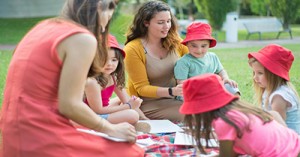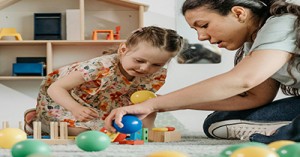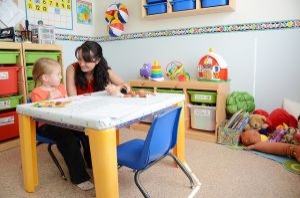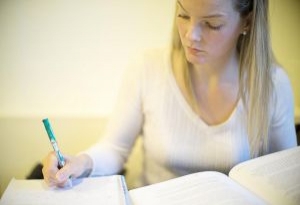A Cert 3 Educator in early childhood settings in Australia plays a vital role in providing high-quality education and care for young children. The following articles provides information on Key Responsibilities, Skills and Attributes of a Certificate 3 In Early Childhood Education.
Key Responsibilities
-
Plan and Implement Educational Programs:
-
Assist in planning, implementing, assessing, and reviewing high-quality and diverse educational programs based on appropriate curriculum frameworks, such as the Early Years Learning Framework (EYLF).
-
Support every child to participate in the program and ensure it promotes children's agency, choices, and influence.
-
Document children's learning in accordance with the service philosophy and learning outcomes.
-
-
Promote Health and Safety:
-
Ensure effective health and hygiene practices, including food safety, medical management plans, and risk management plans.
-
Promote health, wellbeing, and physical exercise within the service.
-
Maintain a safe and stimulating physical environment where all staff and children are protected from hazards.
-
-
Build Positive Relationships:
-
Work cooperatively, ethically, and respectfully with other educators and support each other's professional development.
-
Develop and maintain respectful, supportive, collaborative, and responsive relationships with children and their families.
-
Assist with the supervision of workplace students and volunteers.
-
-
Contribute to Service Management:
-
Ensure all practices align with the National Quality Standards (NQS) and reflect the philosophy, policies, and procedures of the service.
-
Attend professional development opportunities as appropriate.
-
Contribute to the continuous improvement of the service through reflective practice.
-
-
Customer Service:
-
Adopt an actively anti-bias approach in interactions with children, families, and employees.
-
Provide a safe, supportive, stimulating, and educational environment for children aged 0-5 years.
-
These responsibilities ensure that Cert 3 Educators contribute significantly to the development and well-being of children in early childhood settings.
Skills Of A Cert 3 Educator
A Cert 3 Educator in early childhood settings in Australia needs a diverse set of skills to effectively support children's development and learning. Here are some essential skills:
-
Child Development Knowledge: Understanding the stages of child development and how to support children's physical, emotional, social, and cognitive growth.
-
Health and Safety: Ensuring the health, safety, and well-being of children by following proper hygiene practices, managing risks, and providing first aid when necessary.
-
Communication: Strong communication skills to interact effectively with children, parents, and colleagues. This includes active listening, clear verbal communication, and the ability to convey information in a child-friendly manner.
-
Observation and Documentation: Observing children's behavior and development, and accurately documenting their progress. This helps in planning and assessing educational programs.
-
Creativity and Flexibility: Designing and implementing engaging and age-appropriate activities that stimulate children's learning and creativity. Being flexible to adapt plans based on children's needs and interests.
-
Teamwork: Collaborating with other educators and staff to create a supportive and cohesive learning environment. This includes sharing ideas, resources, and responsibilities.
-
Cultural Competence: Respecting and valuing the diverse cultural backgrounds of children and their families. Incorporating inclusive practices and promoting a sense of belonging for all children.
-
Behavior Management: Implementing positive behavior management strategies to guide children's behavior and promote a positive learning environment.
-
Problem-Solving: Addressing challenges and finding effective solutions to support children's learning and well-being.
-
Professional Development: Continuously seeking opportunities for professional growth and staying updated with the latest practices and regulations in early childhood education.
These skills are crucial for Cert 3 Educators to provide high-quality care and education for young children in early childhood settings.
Attributes Of A Cert 3 Educator
A Cert 3 Educator in early childhood settings in Australia should possess a range of attributes to effectively support children's development and learning. Here are some key attributes:
-
Patience: Working with young children requires a high level of patience to handle their varying needs and behaviors.
-
Empathy: Understanding and being sensitive to the emotions and experiences of children and their families is crucial.
-
Creativity: The ability to design engaging and educational activities that capture children's interest and imagination.
-
Adaptability: Being flexible and able to adjust plans and approaches based on the needs and responses of the children.
-
Communication Skills: Strong verbal and non-verbal communication skills to interact effectively with children, parents, and colleagues.
-
Observational Skills: Keen observation skills to monitor children's development and identify any areas of concern.
-
Team Player: The ability to work collaboratively with other educators and staff to create a cohesive and supportive learning environment.
-
Organizational Skills: Efficiently managing time, resources, and documentation to ensure smooth operation of the classroom.
-
Cultural Competence: Respecting and valuing the diverse cultural backgrounds of children and their families, and incorporating inclusive practices.
-
Passion for Education: A genuine passion for early childhood education and a commitment to fostering a love of learning in young children.
These attributes help Cert 3 Educators create a positive and nurturing environment that supports the holistic development of children in early childhood settings.
Further Reading
Cert 3 Qualified Educator Wages In Early Childhood Services
Cert 3 Qualified Educator Job Description
Where To Study Certificate 3 Education and Care Online
Actively Working Towards A Cert 3
Choosing A Course Provider To Study A Cert 3
Differences Between Cert 3 and Diploma In Early Childhood
Reference:
Mastering Skills For Acquiring A Cert 3 In Earlu Childhood Education and Care, Skills Australia







 Whether you are doing a Cert 3 or a Diploma traineeship or thinking about doing a traineeship it’s a good idea to understand what wages
Whether you are doing a Cert 3 or a Diploma traineeship or thinking about doing a traineeship it’s a good idea to understand what wages Work placement is an excellent opportunity for you to prepare and gain insight into the early childhood industry as well as help you to clarify
Work placement is an excellent opportunity for you to prepare and gain insight into the early childhood industry as well as help you to clarify Are you thinking of starting a traineeship in childcare? Well from personal experience, working in this child care industry brings great fulfilment and satisfaction. Watching
Are you thinking of starting a traineeship in childcare? Well from personal experience, working in this child care industry brings great fulfilment and satisfaction. Watching There is no truth to the rumour that the certificate III or 'actively working towards' will be phased out.
There is no truth to the rumour that the certificate III or 'actively working towards' will be phased out.
 For educators looking to update their qualification and have the required knowledge, experience and skills instead of completing assignments and tasks to complete a qualification
For educators looking to update their qualification and have the required knowledge, experience and skills instead of completing assignments and tasks to complete a qualification As a student finding information and doing research is an important part of completing assignments. Once you find the information you need to complete the
As a student finding information and doing research is an important part of completing assignments. Once you find the information you need to complete the Being a student and completing assessments can be a hard task. Especially when you don’t understand what the question is, you have to write an
Being a student and completing assessments can be a hard task. Especially when you don’t understand what the question is, you have to write an As you take the next big step and decide to continue studying you need to decide whether you will be able to manage working at
As you take the next big step and decide to continue studying you need to decide whether you will be able to manage working at Hiring overseas educators can not only bring a service the benefits of a diverse, multicultural workplace but also address staffing shortage issues. However before an
Hiring overseas educators can not only bring a service the benefits of a diverse, multicultural workplace but also address staffing shortage issues. However before an Making the decision to study is a big one. It can be stressful, thinking of how you're going to complete assignments or if you're going
Making the decision to study is a big one. It can be stressful, thinking of how you're going to complete assignments or if you're going


